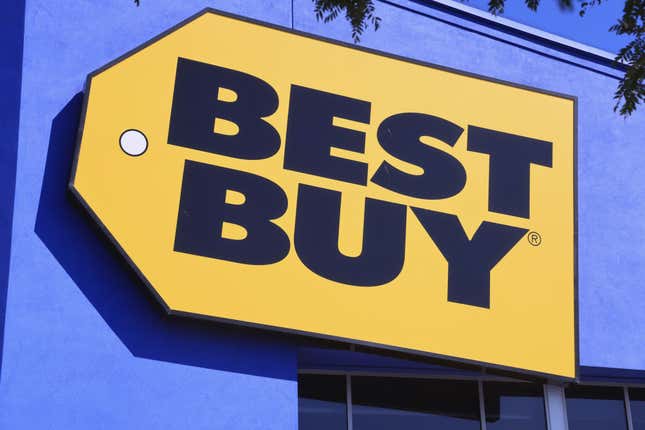
In This Story
Best Buy (BBY-0.94%) may have no choice but to raise prices on electronics if President-elect Donald Trump’s tariff proposals on imports are implemented, according to the retailer’s CEO, Corie Barry.
Barry cautioned that if Trump’s tariffs on Chinese and Mexican imports are reintroduced or expanded, it could drive up the cost of electronics, making already expensive gadgets even pricier.
“Costs will be shared by our customers,” Barry told investors during the company’s Nov. 26 earnings call.
Best Buy missed Wall Street’s expectations for the third quarter, reporting revenue of $9.45 billion, about $1.26 earnings per share. Analysts had forecasted $9.63 billion in revenue, roughly $1.30 earnings per share. The retailer also lowered its full-year sales forecast to a range of $41.1 billion to $41.5 billion, down from its previous guidance of $41.3 billion to $41.9 billion. The lower forecast and earnings miss underscore the broader challenges the company faces, including rising import costs due to tariffs.
Barry’s comments about tariffs highlight the complexity of global supply chains in the consumer electronics industry. Best Buy, like many retailers, relies heavily on imports — particularly from China and Mexico — to stock its shelves. According to Barry, about 60% of the goods Best Buy sells are sourced from China, a number that has remained consistent despite the company’s efforts to diversify its supply chain. These efforts were further complicated by the Covid-19 pandemic, she added.
While Best Buy has worked with vendors to shift production away from China where possible, the reality is that tariffs would increase prices on most of their products, Barry explained. Mexico, she added, is Best Buy’s second largest source of imports.
“There’s very little in the consumer electronics space that is not imported,” she said.
Trump’s tariff proposals would impose a 10% to 20% tax on imports from all countries, with much higher duties of 60% to 100% on Chinese goods.
“The situation remains very fluid” as the company works with its vendor partners to adjust pricing strategies and product assortments to mitigate the impact on customers, said Barry. She acknowledged that while the burden of tariffs is usually shared between vendors, retailers, and consumers, it’s ultimately customers who tend to feel the most significant pinch.
“Higher prices are not helpful,” Barry said, noting that “these are the goods that people need.”
Industry experts, including the National Retail Federation (NRF) and Consumer Technology Association (CTA) have warned that tariffs would likely lead to higher prices on everyday electronics.
Retailers like Walmart and AutoZone (AZO+0.82%), as well as home improvement giants Home Depot (HD-0.55%) and Lowe’s (LOW-0.78%), also have signaled they may raise prices if Trump’s tariffs are implemented.